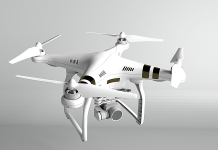DM Monitoring
Arizona: Mario Buelna, a healthy 28-year-old father, caught a fever and started having trouble breathing in June. He soon tested positive for COVID-19.
Weeks later, after what had seemed like a recovery, he felt weak and started vomiting. At 3 a.m. on Aug. 1, he passed out on the floor of his home in Mesa, Arizona.
Paramedics rushed him to a nearby hospital, where doctors put him in intensive care after saving him from a coma. They told him he could have died. Their diagnosis – type 1 diabetes – stunned and frightened him. He had no history of the disease.
“COVID triggered it,” Buelna said the doctors told him. Buelna’s ordeal and similar cases reflect a new worry about the dangerous relationship between diabetes and COVID-19 that’s being urgently studied by doctors and scientists around the world. Many experts are convinced that COVID-19 can trigger the onset of diabetes – even in some adults and children who do not have the traditional risk factors.
It’s already been well-documented that people with diabetes face much higher risks of severe illness or death if they contract COVID-19. In July, U.S. health officials found that nearly 40% of people who have died with COVID-19 had diabetes. Now, cases like Buelna’s suggest the connection between the diseases runs both ways.
“COVID could be causing diabetes from scratch,” said Dr. Francesco Rubino, a diabetes researcher and chair of metabolic and bariatric surgery at King’s College London.
Rubino is leading an international team that is collecting patient cases globally to unravel one of the biggest mysteries of the pandemic. Initially, he said, more than 300 doctors have applied to share cases for review, a number he expects to grow as infections flare up again.
“These cases are coming from every corner of the world and every continent,” Rubino told Reuters.
In addition to the global registry, the U.S. National Institutes of Health is financing research into how the coronavirus may cause high blood sugars and diabetes.
In these situations, symptoms can escalate quickly and become life threatening. These cases may take months to surface after exposure to COVID-19, so the full extent of the problem and the long-term ramifications may not be known until well into next year. More intensive research is needed to definitively prove, beyond the mounting anecdotal evidence, that COVID-19 is triggering diabetes on a wide scale.
“We have more questions than answers right now,” said Dr. Robert Eckel, president of medicine and science at the American Diabetes Association. “We could be dealing with an entirely new form of diabetes.”
‘ABSOLUTELY TERRIFYING’ DIAGNOSIS
Type 1 diabetes occurs when the body’s immune system mistakenly destroys insulin-producing cells in the pancreas, preventing the regulation of blood sugar levels. About 1.6 million Americans have the disease.
Type 2 diabetes is more prevalent, afflicting about 30 million Americans. Those patients still produce insulin, but over time their cells become insulin-resistant, allowing blood sugar to rise.
Type 1 diabetes cases have previously been associated with other viral infections, including influenza and previous coronaviruses. It is known that infections can stress the body and increase blood sugar levels. But this tends to happen in people predisposed to the disease.






